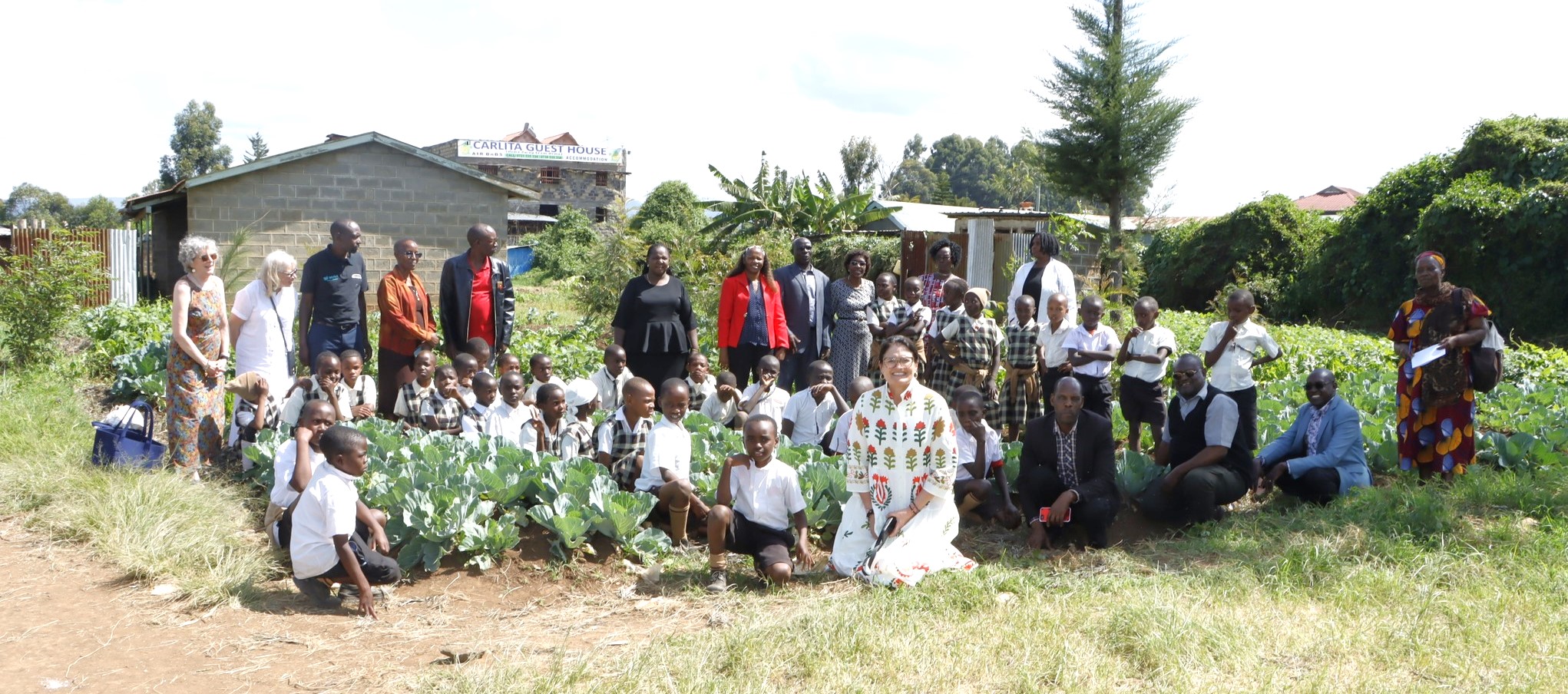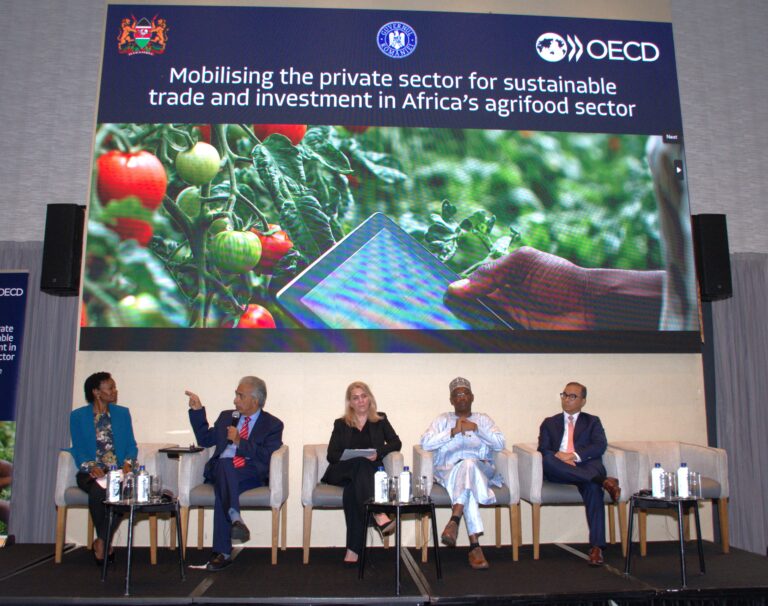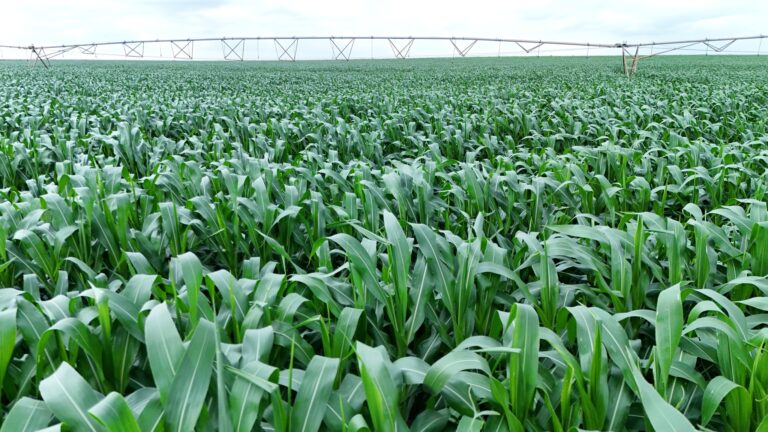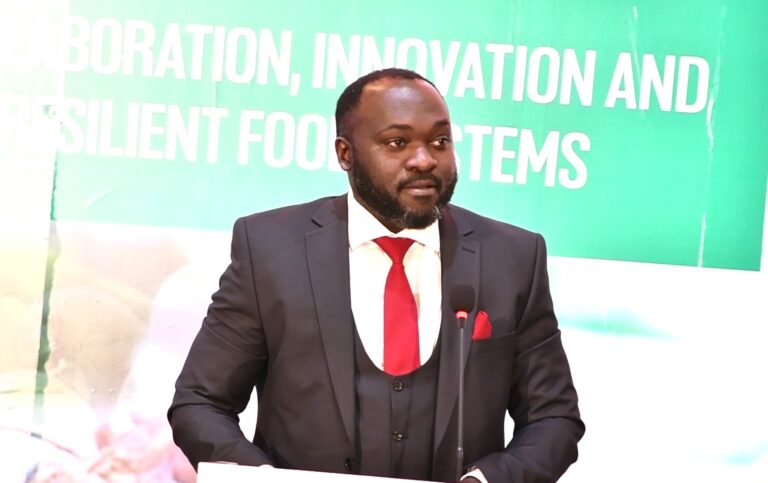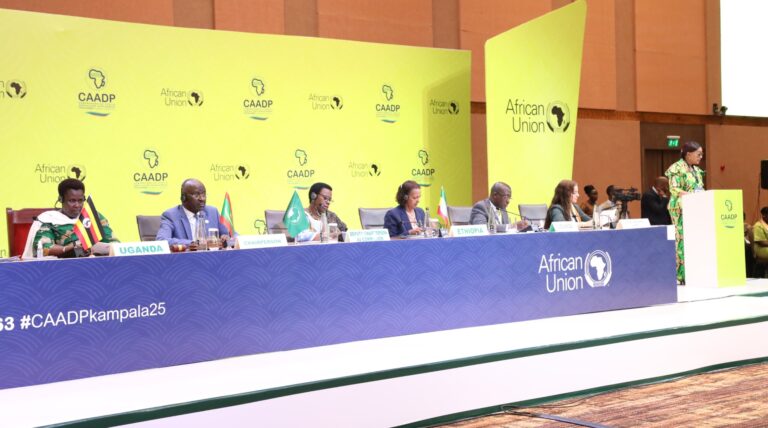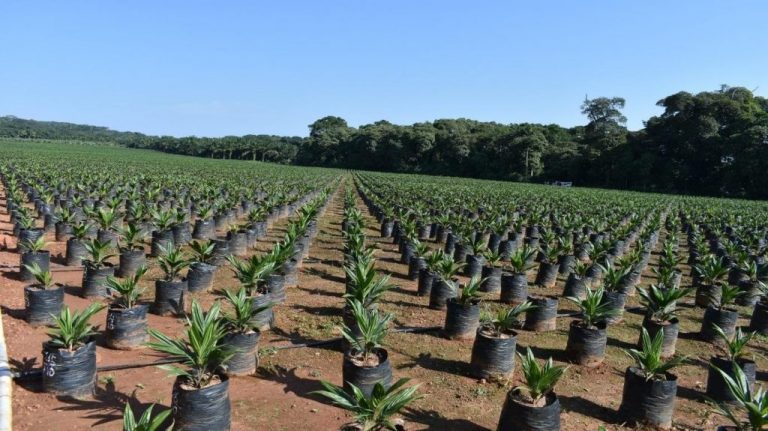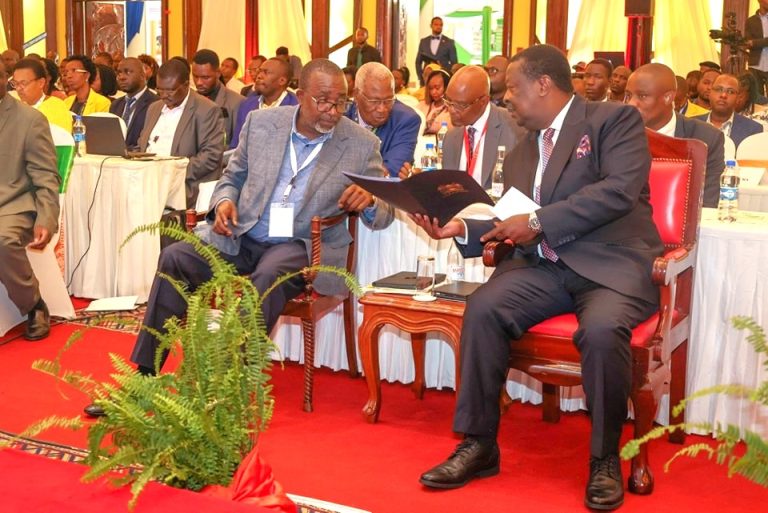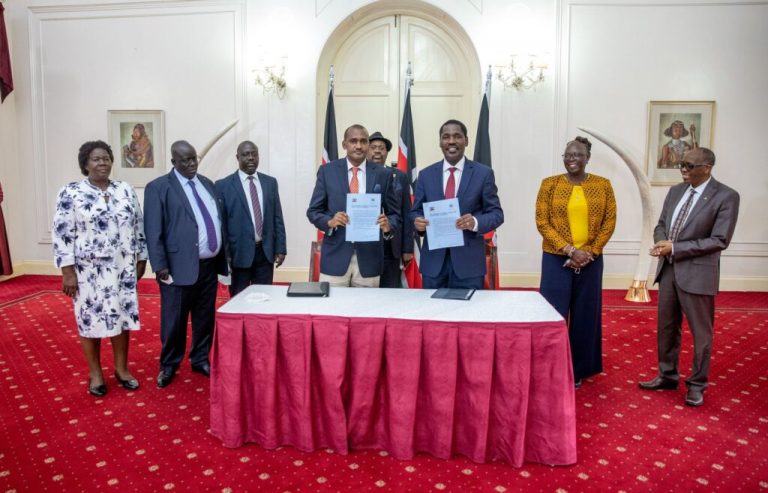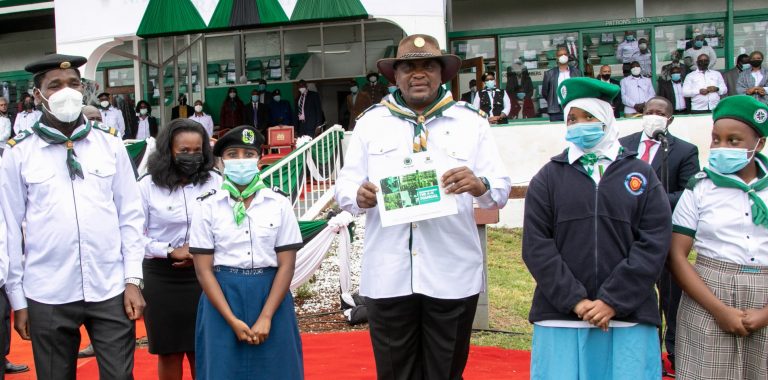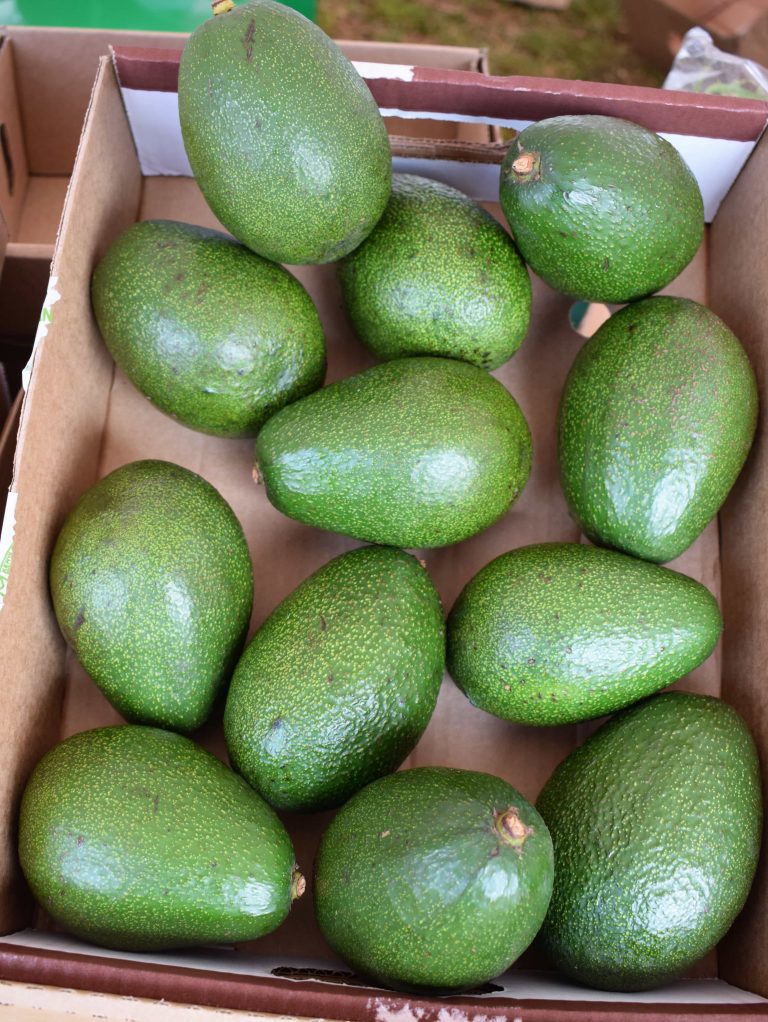Egerton University has launched a partnership with various stakeholders to revitalize 4K Clubs in ten schools across Njoro Sub-County. The aim is to equip young learners with essential knowledge and skills in responsible crop protection and sustainable agriculture.
As part of the initiative, the university is providing training to 4K Club patrons, student members, and school administrators on agricultural innovation and environmentally responsible agronomical practices.
During a recent visit to Ndege Primary School and Njoro DEB Primary School, Dr. Mary Waiganjo of Egerton’s Faculty of Education and Community Development Studies expressed optimism about the program’s impact. “Egerton University is proud to continue working with schools in Njoro Sub-County to support 4K Clubs, helping pupils learn practical farming skills and build a love for agriculture from a young age. The partnership aims to enhance agricultural productivity, ensure food safety, and improve health outcomes within the community,” she said.
Dr. Waiganjo was joined by a delegation from West Virginia University (WVU), including Associate Dean and Director of Extension Jennifer Ours Williams, consultant and retired faculty member Sue Day-Perroots, and Associate Vice President of Land Grant and Community Outreach Ann Bailey-Berry.
She noted that the initiative is also geared toward strengthening the capacity of school-based 4K Clubs to provide students with hands-on experience in addressing climate change and adopting sustainable agricultural practices.
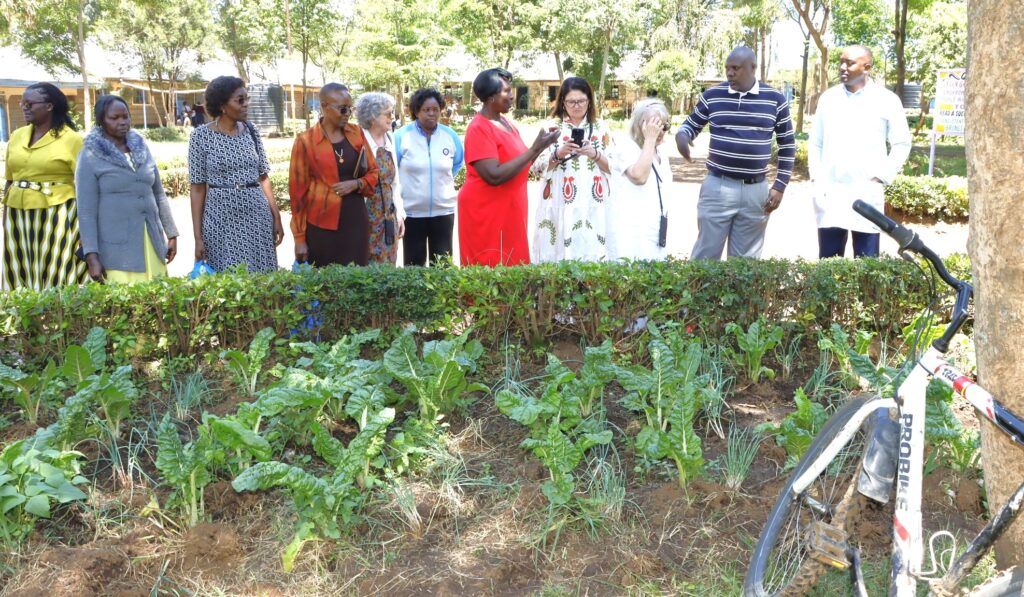
At both schools, pupils showcased vegetable plots they maintain as part of their club activities. At Njoro DEB Primary, the club has gone a step further by integrating agroforestry, planting tree seedlings alongside food crops.
Currently, participation in the 4K Clubs is limited to students in Grades 4 through 6. However, Egerton staff are developing a proposal to extend membership to youth up to age 35, to ensure the program’s long-term sustainability.
Under the framework, each participating school is paired with a mentor from Egerton University, supported by a teacher patron and student coaches from the Agricultural Education and Extension Student Association (AEESA). The university also facilitates training for club patrons and school leaders.
Dr. Waiganjo emphasized the historical significance of 4K Clubs, once a key component of agricultural and environmental education in Kenyan schools. “The clubs are a vital tool in fostering a generation that understands and actively participates in sustainable agricultural practices,” she said.

The 4K Clubs enjoyed popularity in the 1990s before waning due to shifts in educational priorities and a lack of resources. Today, amid escalating climate challenges, stakeholders are rallying to reintegrate them into school curricula.
“Climate change is no longer a distant issue but a reality affecting every aspect of our lives,” Dr. Waiganjo stated. “We need to empower our children with the knowledge and skills to tackle these challenges from an early age. Enhancing the capacity of 4K clubs can play a pivotal role in this effort.”
She further elaborated on the multi-stakeholder approach: “This multi-stakeholder partnership aims to train and empower 4K Clubs school-based agricultural groups on the responsible use of crop protection innovations. The initiative is integrating sustainable practices into the activities of these clubs, fostering behaviour change within schools and the wider community to embrace responsible farming practices.”
The program’s core objective is to build the capacity of young learners and their mentors to improve farming methods, thereby boosting food security, public health, and environmental resilience.
By enhancing the scope of 4K Clubs, students are being introduced to critical environmental stewardship practices such as water conservation, waste management, soil preservation, and tree planting, all key tools in combating the effects of climate change.
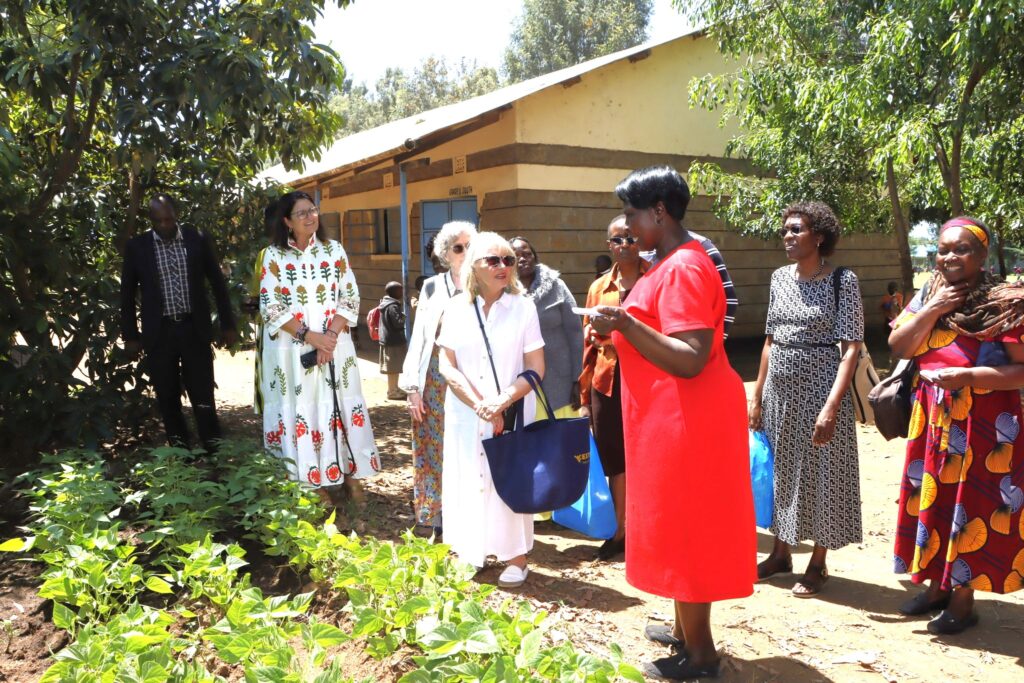
Traditionally, the clubs served as a platform to teach practical farming, environmental conservation, and community service. Under this renewed initiative, club members are also learning about efficient water use and the benefits of agroforestry, particularly important in Kenya’s increasingly water-scarce regions.
Dr. Waiganjo pointed out the alignment between 4K Clubs and Kenya’s Competency-Based Curriculum (CBC). “The CBC is about equipping learners with hands-on skills, and 4K clubs perfectly align with this vision. Through these clubs, students can develop solutions to real-world challenges like deforestation, soil erosion, and food insecurity,” she said.
As Kenya grapples with frequent climate-related disasters such as drought and flooding, the revitalization of 4K Clubs, she asserted, could be a “game-changer.” By instilling environmental consciousness and practical skills early on, the program is contributing to a more sustainable future.


